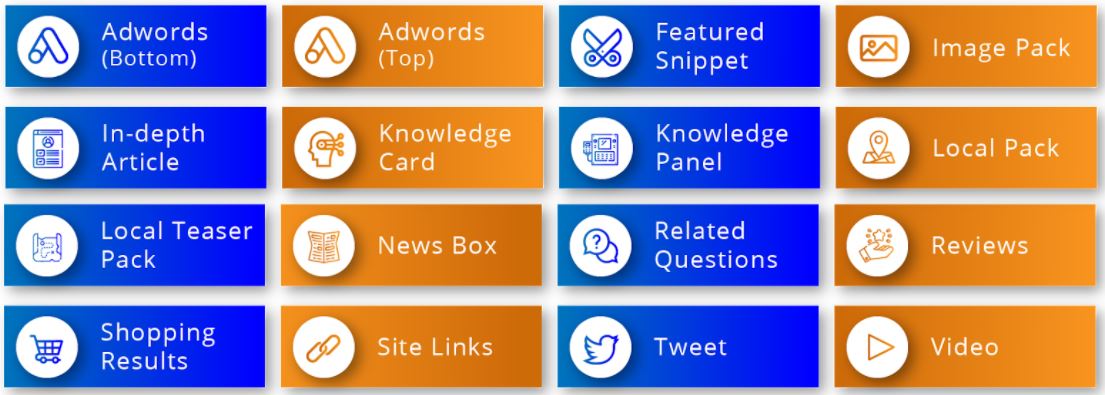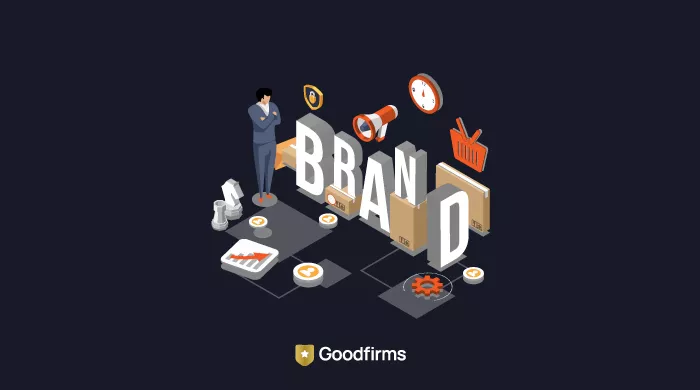From solopreneurs to the ranks of the Fortune 500, every business in our warp-speed world has a digital reputation to protect. A company grows revenue and achieves results based on the strength of its reputation, and frequently, the internet is the single pane of glass through which consumers get their first glimpse of that company. With a wealth of information at their fingertips, consumers have a greater ability to make informed decisions about who they want to do business with than ever before; which means that companies must make a great first impression in the digital sphere in order to have the opportunity to earn a second one.
Having a strong, positive digital presence is becoming more critical with each passing year. As former CEO of Google Eric Schmidt said, “Identity will be the most valuable commodity for citizens of the future, and it will exist primarily online.” In 2020, we have taken a quantum leap toward that future with the COVID-19 crisis: For months, the internet has been the window through which quarantined consumers view the world, and increasingly, they seek to buy products and services from companies that align with their values and understand their fears.
The notion that a positive online presence is a boon for your company and that, by contrast, a negative one can alienate you from business partners and customers, potentially devastating your bottom line, is easy enough to grasp. But the concept of digital reputation is an intangible, amorphous beast that many professionals struggle with; simply because it can be as difficult to quantify as the cybersphere it exists in. In this article, we will delve into the basics of online reputation management (ORM) and why it should be an important area of focus in 2021.
What Is ORM?
Your reputation is built from the beliefs or opinions a specific community or the public at large holds with regard to your business, its employees, its products, or services. Consumers gather impressions, emotions, and perceptions about one or all of the above when they search for information about your company online. ORM is the process of building, monitoring, and repairing those impressions, emotions, and perceptions that consumers gather through the digital content that appears whenever they search for your company on the internet.
Online communications are not just critical components of reputation. They have become the foundation for a business’s survival, sustainability, and growth in today’s world. Your audience’s confidence in your company depends on positive digital content, and posts like positive online reviews from real clients will foster trust, earning you sales, prospects, and referrals. Conversely, negative hits to your online reputation will quickly damage your offline one. Negative comments may be easily shared and circulated among large numbers of internet users, which is why companies with a proactive ORM strategy tend to get much higher ROI from their digital presence than those with a reactive one.
What Has Changed Since COVID-19?
It goes without saying that the coronavirus pandemic has shattered the economic status quo. Everything about doing business is different, and we are different too.
As we shift toward a new normal, online content and search trends are shifting. Consumers are gravitating toward businesses that make buying their products or using their services safer, viewing this as a reflection of how these businesses care for their customers. Customers want to know that businesses are “doing things right,” “doing their part,” and holding their employees to the highest possible standards when it comes to protecting others from harm.
“Building a digital reputation is a strategic endeavor any company or individual with an online presence should undertake," says Anne Marie Malecha, a crisis management expert and Executive Vice President and Partner of Dezenhall Resources. "While doing it right takes time, having an overwhelmingly positive digital reputation baseline can help clients weather crises and recover more quickly.”
In the new COVID-afflicted world, a company that is not making a public-facing online statement about how they are handling the virus is a company that is losing customer loyalty and money by the hour.
4-Step Roadmap to a Strong Online Reputation

ORM is a proactive process that begins with intentionally creating the right online presence for your business and then vigilantly defending the reputation you have built. There are four steps to this process.
-
Evaluate
Examine your company’s current online presence to uncover ways its reputation might be vulnerable.
-
Build
Shape the relationship you want with your audience with online content that engages them while preventing negative content.
-
Monitor
Make ORM an ongoing concern, proactively preserving your local, regional, and global reputation and mitigating reputation risks.
-
Repair
Immediately address defamatory content.
It all begins with an in-depth assessment of how good your company looks in the cybersphere.
Evaluate
Billions of Google searches are performed each day, and each of them yields a search engine results page (SERP). What appears in the first ten positions on SERP for your company is critical because these ten results receive 94% of all user clicks—meaning this is the core information your customers will ever learn about you. Research also shows that 75% of internet users never scroll past the first page of search. Therefore, your evaluation should begin with what appears in the top ten spots of your SERP’s when you Google:
- Your company name
- Your name
- Your employer’s and colleagues’ names
- Clients
- Competitors
- Brand(s)
- Services
- Products
Keep in mind that desktop and mobile searches differ when it comes to what appears on the first page of a search. What appears in the top ten on your desktop will not be the same ten on your smartphone at least 30% of the time.
ORM goes beyond the scope of search engine optimization (SEO), but SEO is a key component of ORM. Google changes its algorithms for how it ranks search results hundreds of times per year, so optimizing a website for SEO has become increasingly difficult for businesses. A recent update focused on natural language processing, the BERT algorithm, represented a particularly large shift and is keeping SEO professionals busy. Meanwhile, COVID-19 related searches are now the most popular on Google, making it a key topic for businesses to prioritize.
One of the SERP elements that are foundational to any company’s online reputation is the Google local listing, a service that provides a dashboard with the name, website, and contact details for your business and gives consumers an opportunity to leave reviews with starred feedback ratings. Those ratings are an important source of information for people who want to research your company, so earning positive Google reviews is a key reputation-building tool.
Other popular Google features to evaluate that have an impact on your online reputation are:

Build
To build a positive reputation online, companies need to create high-quality digital assets. That includes engaging content pieces, a strong social media presence, and positive ratings and reviews. It’s important to remember that while companies have digital reputations to protect, each individual in a company has their own digital reputation, which can boost or detract from the company they work for. Focusing attention and resources on creating a positive digital presence for company employees alongside the company itself can amplify the business’s overall standing online.
“A company’s digital reputation is oftentimes the gateway into developing a relationship with a customer or client,” says Emily Woloschuk, a legal marketing professional and Director of Marketing & Business Development at Lightfoot, Franklin & White. “First impressions are key. Being strategic about what you put onto the internet is essential in conveying a positive impression of your company which, if done successfully, supports a client’s buying decision.”
Website optimization, SEO, and establishing domain authority should all be of central concern when you are building digital assets. Maintain your website on a monthly basis and address all factors that Google considers for ranking, such as plug-in updates, meta tags, backlinks, and strong introductory paragraphs. Also, ensure that your website is adaptable across all the devices and operating systems potential consumers prefer to use when they search for your business, services, and products. Failing to do that weakens your ability to engage people and convert your web traffic.
Welcoming reviews and ratings and engaging positively with customers who leave them is another important way to create a healthy digital presence. Research has shown that 84% percent of people trust online reviews as much as a personal recommendation, and 58% of consumers say that the star rating of a business is the most important reason to trust it.
Monitor
Once your company has established a positive digital presence and attained a top SERP ranking with the domain authority that entails, you can transition from the building stage to the monitoring stage. Active monitoring can prevent adverse news or negative commentary from influencing potential customers or business partners. This work never stops. There are, however, many tools out there to minimize the burden of ongoing monitoring work and to give you the best insight into your reputation across multiple touchpoints.
Repair (and Repeat)
As Warren Buffett once said, “It takes 20 years to build a reputation and five minutes to ruin it. If you think about that, you’ll do things differently.”
Preventing a negative reputation and applying the mindset of continuous improvement to your digital presence requires constant vigilance. When a negative link appears in the SERP, you should first determine if it is a one-time issue or if it has the potential to become a long-term problem. A negative link or post can come from clients, employees (notably former employees), vendors, partners, legal matters, or even just troublemakers with internet access. When a detracting factor arises, repair work must begin immediately. Equip team members with the right skills and educate leaders about the value of a positive online reputation, enlisting experts when necessary to get more serious situations under control.
Special areas of ORM concern are:
- Competitor stratagems (yes, competitors can pay to plant false reviews of your business online)
- Consumer feedback websites
- Court case filings
- Defamation bloggers
- Embarrassing images & videos
- Erroneous information
- Erroneous profiles
- Legal documents
- Mistaken identity
- Name changes
- Negative news or editorials
- Purported scam reports
- Past employee slander
- Scandals
- Slander & hate websites
Wrapping Up!
A qualified expert can help you handle negative online posts and minimize their potential to seriously affect your bottom line. Mitigate reputational risk by curating a positive digital presence. When your Google results accurately reflect how you provide value, you can foster trust more effectively while also preparing for a future digital crisis.








